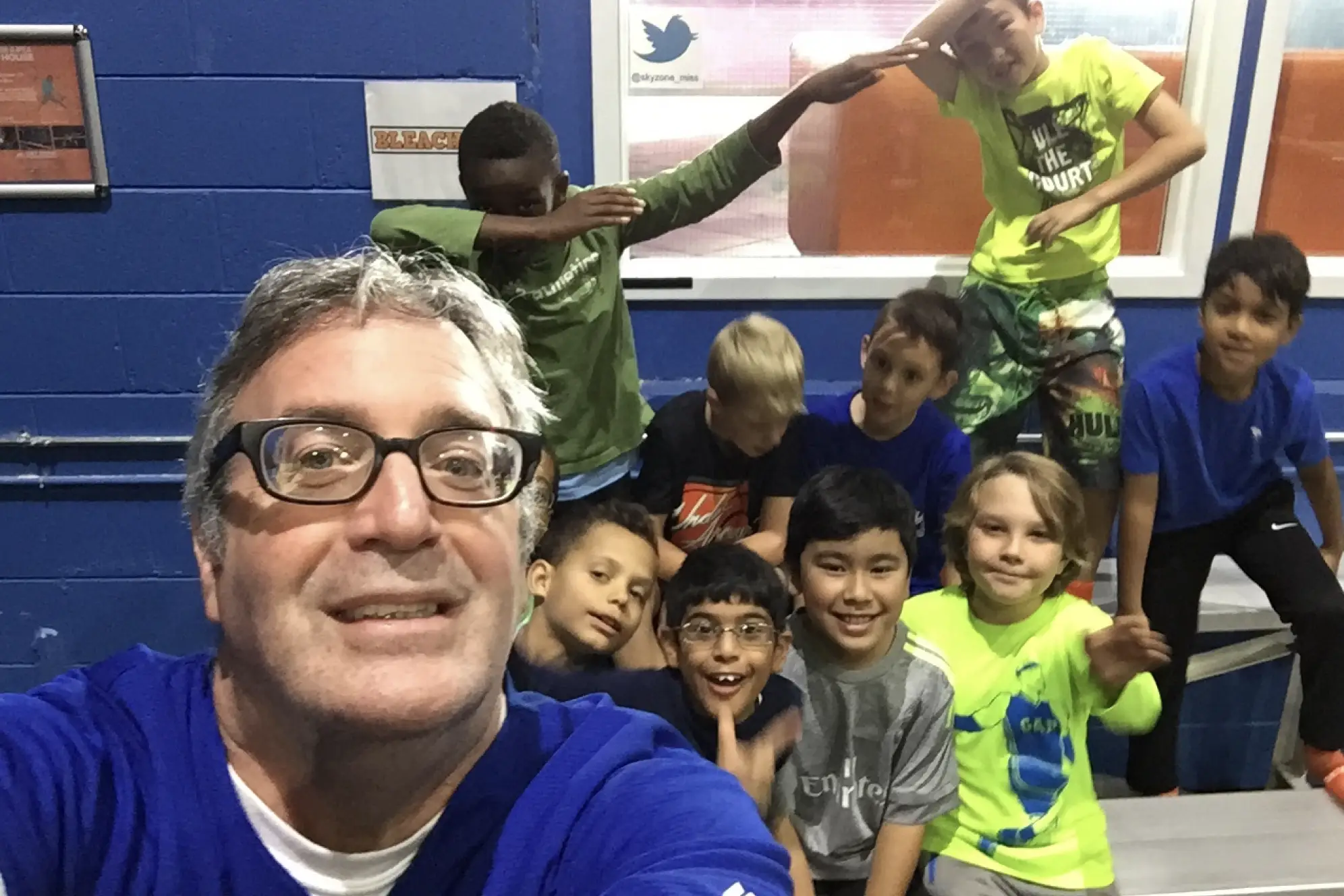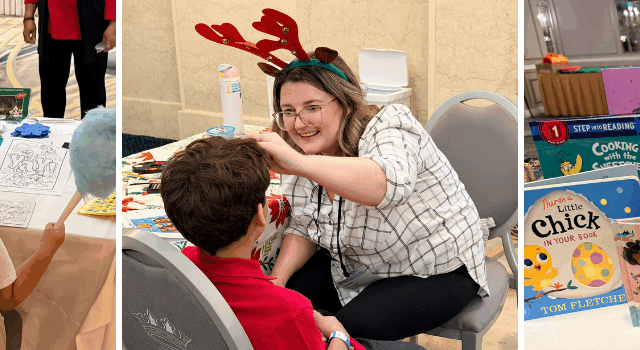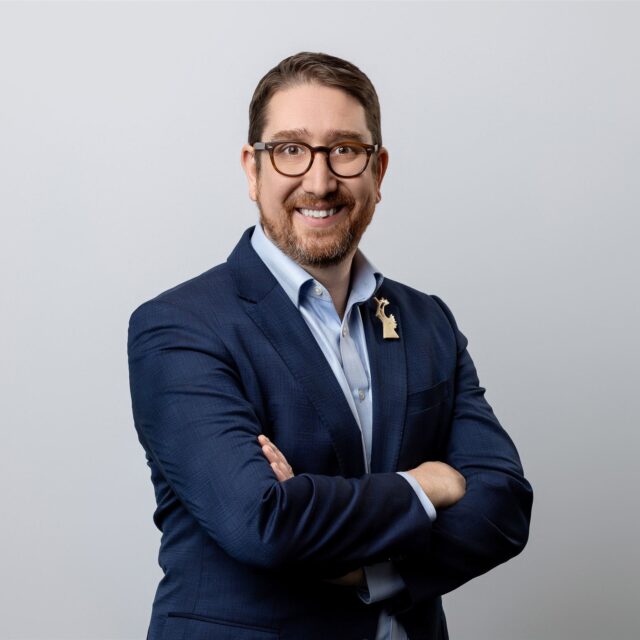Irwin Elman, the former Ontario Provincial Advocate for Children and Youth, won the 2019 Lynn Factor Stand Up for Kids National Award in recognition of his lifelong dedication to elevating the voices of young people and advocating for changes in policy and practice.
Over the course of his nearly 40-year career, he has influenced fundamental shifts in the child welfare system –– including successfully advocating for increased educational supports for young people in government care and more resources for youth in the process of transitioning out of the system.
We spoke with Irwin to find out what receiving the Lynn Factor Stand Up for Kids National Award meant to him and how he’s continuing to make a difference today.
What did it mean to you to receive the Lynn Factor Stand Up for Kids Award?
People always say they’re humbled to be recognized, but the experience of getting this award truly was humbling. When your peers nominate you for an award like this, it feels very emotional.
Like so many of us, I sometimes get a bit of imposter syndrome. The award made me reflect on myself and what I’ve accomplished, and it gave me a sense of honour –– I’m honoured that my peers in the sector felt my work was important.
It also inspired me to keep going. When I received the Lynn Factor Stand Up for Kids National Award, I had just retired from my position as the Provincial Advocate. But I knew I did not want to stop contributing to the world, and the award gave me the confidence and self-respect I needed to feel I truly have a place in this world –– a place where I can continue to be helpful and make a difference.
You selected Feathers of Hope, Hairstory, and the Ontario Children’s Advocacy Coalition to share the $50,000 you received as part of the award. Why did you choose these organizations?
All three of these organizations emerged from the work of the Office of the Provincial Advocate for Children and Youth. They’re youth-led organizations working to advocate for youth in care, and specifically for Black and Indigenous youth, who are significantly overrepresented in the child welfare system.
When the Office closed, they were stunned. They had big plans to move their agendas forward, with goals to become independent not-for-profits down the line. So as the Office was closing, we decided to support them to figure out how to do that –– how to become independent organizations and gain not-for-profit status.
Children’s Aid Foundation of Canada connected us with a great charity lawyer, who guided them through the process of incorporating as a not-for-profit. And then the funding I was able to provide as a result of receiving the Lynn Factor Stand Up for Kids Award helped them become established.
They’re all continuing to do important work today to improve the lives of children and youth involved with the child welfare system. It’s been an honour to be able to support them in this way.
As you reflect on your 40-year career, what are some of the moments you’re most proud of?
When I started in this sector 40 years ago, I was fresh out of teacher’s college with a counselling degree and didn’t know much about children in care. But I got a job setting up the Pape Adolescent Resource Centre (PARC) –– which is now a major resource for young people in Toronto preparing to leave government care and transition to adulthood.
When we were establishing PARC in the 1980s, there was no support available to help young people graduate from high school and move on to post-secondary. We couldn’t find a single young person from government care who had attended college.
But we created this space, and we believed in them. As a young person told me, PARC allowed youth from care to “travel in the bright light of their full potential.”
Now there are all kinds of supports in place to help young people graduate high school and move forward in life, including many resources through Children’s Aid Foundation of Canada, which is a major partner of PARC. There’s the scholarship program, there are youth in transition workers across the province. These are all legacies of our work with PARC and the Office of the Provincial Advocate for Children and Youth.
In terms of the Office itself, we were able to influence a number of instrumental changes in the system –– one of the biggest being that policy changes concerning children and youth in care are no longer made without young people being consulted in some way. That’s huge: as they always should have been, young people with lived experience now have a direct say in decisions being made about their lives and futures.
Those are a few of the legacies I’m most proud of, yet I never forget I was always walking alongside some of the strongest and most determined people I have ever met –– young or old. Those children and youth marginalized from their rights who did all the heavy lifting in their lives and across the province and, I dare say, the globe.
What do you see as the biggest challenge facing the child welfare sector today?
Young people will often say that they’re left out of their own lives. I remember hearing the analogy that it’s like driving a car: they’re in the passenger seat of a car, which is their life. Someone else is driving it. And then at some point –– when they turn 18 and are no longer eligible to remain in government care –– the driver just gets out. But no one ever taught them how to drive the car, to drive their own life. They say this consistently.
Certainly, providing more support for youth in the process of transitioning out of government care must remain a crucial priority. We have to teach them how to drive before we get out of the car. Yet we should begin the process of “driving lessons”, if you will, the moment we connect with them in entering our systems of care. This will require huge and difficult culture and systems change.
And the other challenge is just making sure young people in care feel that someone is there for them. They say this all the time, in many different ways: “We just need someone who understands us, believes in us, who respects us.” So creating programs like Big Steps to Success and creating a culture within the child welfare system that supports stronger relationship building between youth and social workers are both critical steps toward making this happen.
We can’t legislate love, but we must find ways of creating legislation, policy, and programs that legislate the conditions in which love can flourish.
You retired from the role of Provincial Advocate in 2019, at the same time that the office closed. What are you up to these days?
My mom taught me that it’s not my responsibility to save the world, but I’m not exempt from trying. So I’m continuing to focus on making a difference wherever I can.
I work with people at an individual level who need support navigating the child welfare system. I’m also currently serving as a Fellow with the Laidlaw Foundation, which is working to break down barriers to well-being for young people at risk. I’m a Global Strategic Advisor at Until the Last Child, which works with child welfare agencies across Canada to help children in government care find permanent, stable homes. And I work with a wide variety of youth-led groups and organizations.
I also continue to be in regular touch with government representatives, advocating for changes to the system. And most recently, I announced that I’m running as an NDP candidate for Don Valley West in the upcoming provincial election, to try to enact change from within the political system.
So I’m doing a lot of things to try to keep making a difference in the world.
Nominations are now open for the 2022 Lynn Factor Stand Up for Kids National Award!
Do you know someone who’s making a difference for young people involved with the child welfare system? Nominate them today to celebrate and recognize their contributions! Nominations will be accepted until 11:59 p.m. EST on March 25, 2022.



